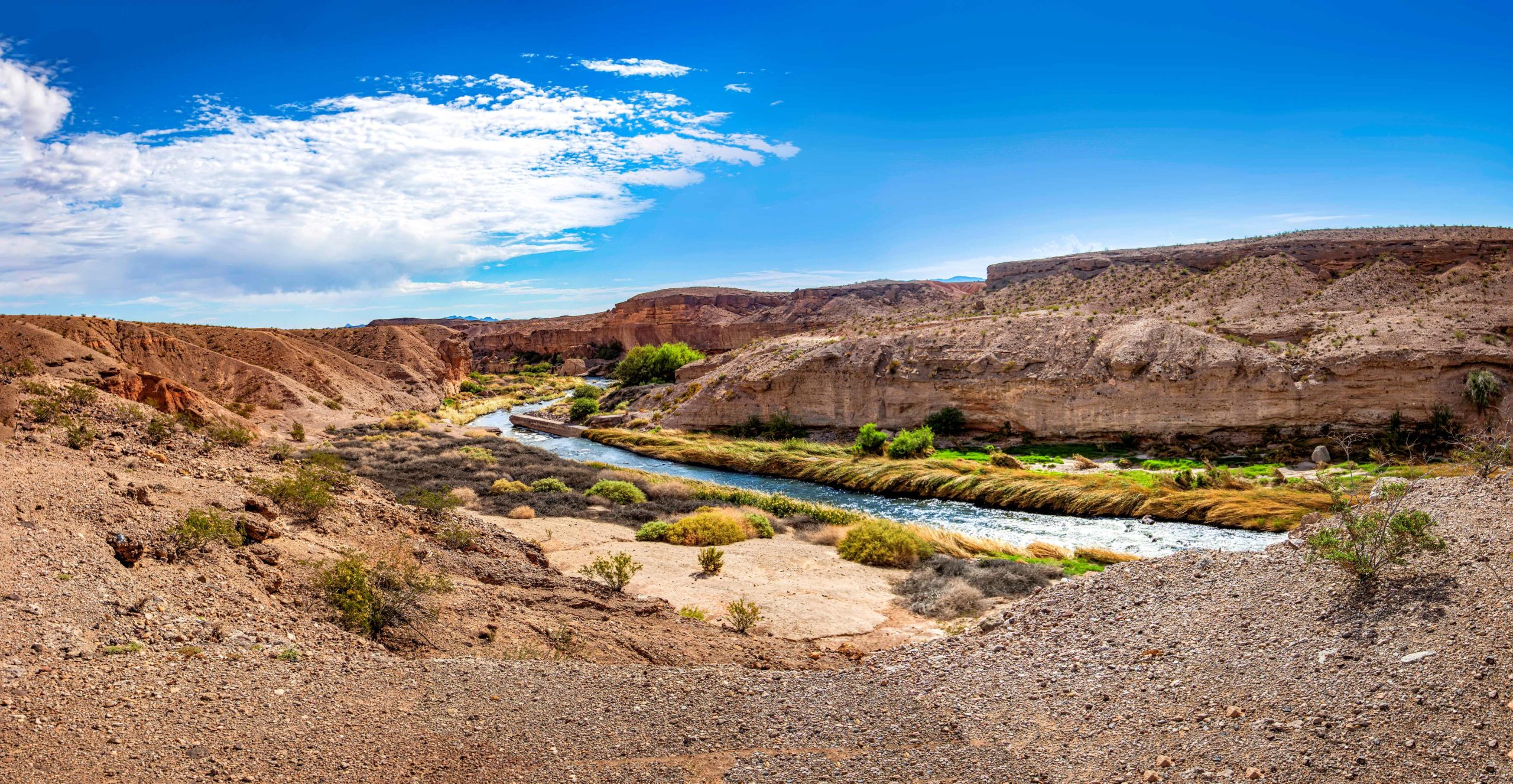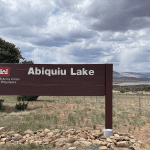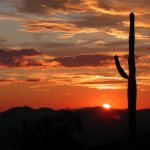- 21 projects will benefit 11 states.
- Builds on a $51 million commitment from 2023.
- Strengthens drought resilience and watershed health.
- Allocates over $8 billion for water infrastructure over five years.
- Advances the Justice40 Initiative for disadvantaged communities.
January 9, 2025 — The Department of the Interior announced on January 7 a more than $41 million investment from President Biden’s Bipartisan Infrastructure Law. The funds will bolster water resources, advance ecosystem health, and fortify communities grappling with drought and climate impacts. This move follows a $51 million investment made last year under the same program.
a more than $41 million investment from President Biden’s Bipartisan Infrastructure Law. The funds will bolster water resources, advance ecosystem health, and fortify communities grappling with drought and climate impacts. This move follows a $51 million investment made last year under the same program.
Nature-Based Solutions.
“Nature is our best ally in the fight against climate change and through President Biden’s Investing in America agenda, we have transformational resources to advance locally led, partnership driven projects like these that will catalyze nature-based solutions and build resilient communities and landscapes,” said Secretary Deb Haaland . “These collaborative projects will enhance watershed health and conservation throughout the country.”
. “These collaborative projects will enhance watershed health and conservation throughout the country.”
According to the Department of the Interior, the 21 projects will focus on activities such as canal lining, pipeline installations, instream restoration, and fish habitat improvements.
Projects in the Colorado River Basin States.
The entire list of projects receiving the $41 in funding is available on the Bureau of Reclamation’s website. Of them, the following projects in the Colorado River Basin states received funding under the January 7 investment:
receiving the $41 in funding is available on the Bureau of Reclamation’s website. Of them, the following projects in the Colorado River Basin states received funding under the January 7 investment:
California
- City of Rialto, Rialto Habitat Nature Wetland Project
- Funding: $3,000,000
- Summary: Constructs 10 acres of wetlands in the Upper Santa Ana River Watershed to mitigate water temperature, improve water quality, and enhance aquatic habitats. Includes recreational spaces and green infrastructure.
- San Diego County Water Authority, San Luis Rey Wetland Habitat Restoration Project
- Funding: $3,000,000
- Summary: Restores 42.5 acres of habitat affected by the 2017 Lilac Fire. Focuses on native species restoration and water quality improvement.
- The Sierra Fund, Hydraulic Mine Restoration at Youngs Hill
- Funding: $862,352
- Summary: Implements watershed restoration in the Tahoe National Forest. Activities include fire risk reduction, erosion control, and soil stabilization, benefiting local communities and cultural lands.
- United Water Conservation District, Freeman Diversion Fish Screen and Fish Bypass System
- Funding: $3,000,000
- Summary: Enhances fish passage on the Santa Clara River, benefiting the endangered Southern California Steelhead and ensuring water supply reliability.
- Yurok Tribe, Weaver Creek Habitat Restoration Implementation
- Funding: $3,000,000
- Summary: Develops instream habitat and floodplain areas to support Coho Salmon populations, mitigate low-flow impacts, and control invasive species.
Colorado
- Boulder Watershed Collective, Boulder Creek Headwaters Resiliency Project
- Funding: $954,204
- Summary: Restores 181 acres of riparian habitat and wet meadow streams using in-stream structures, native vegetation, and beaver reintroduction.
- Headwaters Alliance, Ecological Stream Restoration of Willow Creek
- Funding: $2,450,719
- Summary: Restores degraded Willow Creek by stabilizing banks, creating vegetated floodplains, and improving aquatic habitat.
- Learning By Doing, Upper Colorado River Ecosystem Enhancement Project
- Funding: $1,425,859
- Summary: Restores sections of Fraser River and Willow Creek by addressing channel dimensions, stabilizing banks, and improving aquatic habitat.
Nevada
- Southern Nevada Water Authority, Riparian Habitat Improvements Along the Muddy River
- Funding: $1,494,569
- Summary: Restores 10 acres of riparian habitat to improve hydrology, reduce fire risk, and support endangered species like the Moapa dace.
- Southern Nevada Water Authority, Wildlife Habitat Enhancement Along the Las Vegas Wash
- Funding: $633,875
- Summary: Enhances 12.7 acres of wetlands and riparian areas to improve water quality in the Las Vegas Wash and Lake Mead.
New Mexico
- Chama Peak Land Alliance, Cross Boundary Watershed Protection in the San Juan Rio Chama Region
- Funding: $5,000,000
- Summary: Reduces wildfire risk by conducting forest thinning on 3,500 acres, improving water supply resilience in key watersheds.
- New Mexico Acequia Association, Supporting Agroecological Capacity
- Funding: $1,950,000
- Summary: Restores 1.6 miles of the Santa Cruz River, enhances acequia systems, and mitigates climate risks to traditional agricultural practices.
Wyoming
- Trout Unlimited Inc., Hoback River Tributaries Native Fish Passage
- Funding: $1,246,400
- Summary: Upgrades diversion structures on Dell and Jack Creeks to reconnect fish habitats, improve irrigation efficiency, and support native species like Snake River cutthroat trout.

 . In the picture, Colorado State Highway 125 is partly visible through the trees on the right. The view also shows fire damage caused by the 2020 East Troublesome Fire. By Jeffrey Beall, October 2022. Licensed under the Creative Commons Attribution 4.0 International license.
. In the picture, Colorado State Highway 125 is partly visible through the trees on the right. The view also shows fire damage caused by the 2020 East Troublesome Fire. By Jeffrey Beall, October 2022. Licensed under the Creative Commons Attribution 4.0 International license.Collaborative Approach.
“The projects selected are working through a collaborative process to achieve nature-based solutions for the health of our watersheds and river ecosystems to increase drought resiliency,” said Bureau of Reclamation Commissioner Camille Calimlim Touton . “This historic investment from the Bipartisan Infrastructure Law gives Reclamation the opportunity to continue to collaborate with our stakeholders to leverage funds for these multi-benefit projects.”
. “This historic investment from the Bipartisan Infrastructure Law gives Reclamation the opportunity to continue to collaborate with our stakeholders to leverage funds for these multi-benefit projects.”
Reclamation’s WaterSMART program efforts span California, Colorado, Hawaii, Idaho, Montana, Nebraska, Nevada, New Mexico, Texas, Washington, and Wyoming. By improving water management systems and advancing river restoration initiatives, the program aims to help communities better withstand severe conditions tied to climate shifts.
Expanding Impact Nationwide.
The Bipartisan Infrastructure Law is delivering $8.3 billion over five years to finance water infrastructure projects, including water storage, conservation, and nature-based solutions. Since its enactment three years ago, more than $5 billion has been announced for over 670 projects nationwide.
Justice40 Initiative.
The WaterSMART program also supports the Biden-Harris Administration’s Justice40 Initiative, which seeks to ensure that 40 percent of certain federal investments flow to communities historically facing underinvestment and heightened pollution burdens.
Top Image:
Las Vegas Wash , via BLM news release.
, via BLM news release.





The Biden – Harris administration has done quite a bit of good. I’m glad of it.